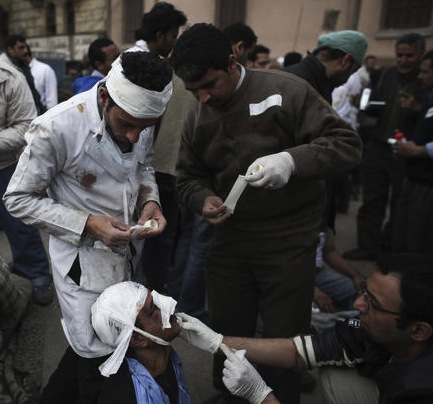Documenting the revolution sounded like an easy thing, but what is the revolution? When did it start? When did it end? What constitutes participation in the revolution – is it only those who went down to Tahrir, or is it also the doctors who worked extra-long hours in their hospitals to treat the wounded? What about a police officer who fought the protesters – is he a part of the revolution or not?
It is people who make history, not generals or leaders.
The question of access to information and archives is political, because reading history is interpreting history, and interpreting history is one way of making it. Closing people off from the sources of their own history is an inherently political gesture, and equally opening that up is a political – even revolutionary – act.
This was a leaderless revolution, and one which came about through mass participation. The way we write history now has to be part of the same process, and so does the way we access that history. That for me is as much a part of the revolution as anything else.
Egyptian historian Khaled Fahmy, quoted in ‘The struggle to document Egypt’s revolution‘, The Guardian, 15.07.2011.


Comments Off on “What constitutes participation in the revolution?”